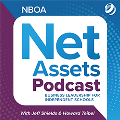Oct 8, 2020, 5:26 PM
(From SHRM) On October 6, federal agencies announced long-expected reforms to the H-1B visa program for high-skilled foreign workers that would increase the required wages employers must pay their H-1B workers and redefine the degrees, occupations and employer-employee relationships eligible for the visas. The interim final rules will limit the types of jobs that will qualify for H-1B transfers and extensions this year and could potentially limit which roles will qualify for workers applying for their first H-1B visa early next year in the next lottery cycle. Under the new set of rules, about one-third of H-1B visa applications will be rejected, according to Ken Cuccinelli, a senior official at the Department of Homeland Security.
Publishing the regulation as an interim final rule allows it to go into effect without public input but also makes it more vulnerable to legal challenge. In the meantime, employers can do the following:
(From Fisher Phillips) As the flu season approaches and the COVID-19 pandemic continues, employers would do well to review and formalize their inoculation policies now, according to a recent legal alert from Fisher Phillips. Employers should ensure that the organization’s rationale for requiring flu shots is based upon objective facts, tied to employees’ job descriptions and that practices are administered consistently. Should an employee request an exemption from mandatory flu shot requirements, employers must engage in and document any exchanges with the employee to determine whether a reasonable accommodation would enable them to perform essential job functions without compromising workplace safety, while ensuring that employees who request an accommodation suffer no negative repercussions.

Listen to the latest episode of the Net Assets podcast.